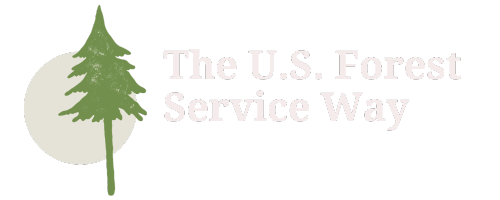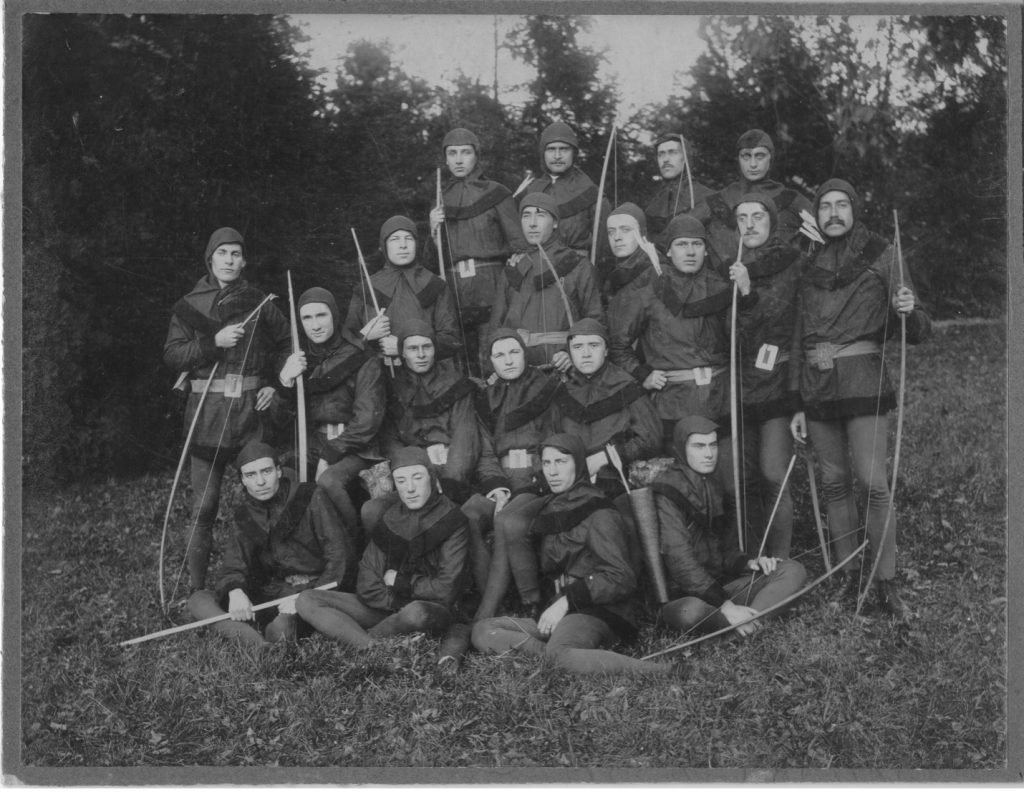Leadership is an activity that just about anyone can undertake from any place in a system or group. Frequently confused with positions of authority, leadership is not a role or a title. The people we often call "leaders" are not necessarily exercising leadership. Think of leadership as a practice, like yoga or any other type of personal or professional development and growth work. It is an ongoing effort that requires intention, reflection, feedback loops, and much more.
-Ron Heifetz, founder of the Executive Education Program at Harvard’s Kennedy School of Government
Forest Service values, beliefs and behaviors are inherited from our past—our distant past. They become stirred together with all the other experiences we each have. My experience leads me to believe that there are behaviors that help people be more successful. There are also behaviors that work against one’s success.
The Forest Supervisor position has always been unique in government, both in the broad authority granted and in the character of the individuals selected. In the year the Forest Service was founded, 1905, Elers Koch was assigned to be the first Forest Supervisor for the Lolo National Forest in Montana. Koch was in his mid-20’s when he stepped down onto the train platform in Missoula, Montana with his new Danish wife and started his new job. He must have had mixed feelings. A native Montanan, he had gotten his college education at the Montana Normal School (now Montana State University). He had gone East for his graduate education, to the newly formed Yale School of Forestry where he received two years of technical training in “scientific forestry,” mostly adapted from European forestry schools. Koch had been raised on a ranch but was now a “forester.”
There is an unusual historical photo of the first class of Yale forestry students dressed as Robin Hood’s band of merry men, complete with bows and arrows and green tights. This is a graduate school at Yale forming a club. Clubs were a purview of the wealthy class in America. If you had the wealth, you belonged to “the best clubs.” This was a new form of social club at Yale. It was not like the Skull and Bones secret society, to which Gifford Pinchot had belonged. This club was made up of a different breed of college men. Though some were from families on the Social Register of New York or Chicago, most were just energetic Midwestern farm boys or merchants’ sons, or young men who simply loved to ride and shoot and be in the woods. The students came from a cross section of American Culture, and of course, men like Pinchot. This picture of Robin Hood’s band of merry men lacked one person -Robin Hood. He was too busy.
For the first 25 years of the Yale School of Forestry, half joined the Forest Service. Pinchot referred to the new graduates as practicing the preaching. Preaching is the right word. Koch had eagerly absorbed the values and beliefs inculcated at Yale. And like so many of the early graduates, Koch had an almost missionary zeal to put Pinchot’s principles of forest conservation into practice. Koch was a sensible selection for the Lolo Forest Supervisor’s job. Having grown up on a ranch, he was not immune to hard outdoor work under tough conditions. Now he was a missionary with a saddle and rifle.
By necessity, Koch and his fellow Forest Supervisors exercised broad discretion in applying those principles. He was given only a crude map of the two million-acre Lolo National Forest, and the small green Use Book describing the basic Federal regulations governing the use and occupancy of National Forests. There were no boundaries, no Rangers, no office, no horse—just a few rules and an assignment to bring this National Forest under control of the US Forest Service. He had to make choices and decisions in very remote places with little communication with headquarters in faraway Washington. Regional Foresters, called District Foresters, where not officers at the time. Forest Supervisors reported to the Forester (Pinchot). You can see why the agency had to give the position exceptional authority to act independently.
These elements have defined the job of the Forest Supervisor for more than a century. This is why there was so much emphasis on finding, what Pinchot called, “men of character.” They needed to be trusted. Theirs are the “boots on the ground,” and in the Forest Service culture, headquarters still accords the greatest credibility to the view from the field. It is often said, “if you have not been in the field in the last six months, you most likely do not know what is going on.” In my own experience as a Forest Supervisor, there is no shortage of unsolicited “advice,” which is most often regarded as not very helpful. Though much has changed since the days of Elers Koch, there is still no substitute for the daily direct engagement of the Forest Supervisor with the individuals and communities whose lives and livelihoods are influenced by how these public resources are managed. The Forest Supervisor job is not getting easier. The job must tackle messy problems. It is not like business leadership. It is way more difficult.
Eddie B. 2023

